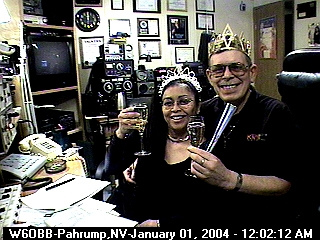August 10, 2018
Radio is intimate and personal. There’s a live voice on the other end of the speaker. You close your eyes and you see him or her, not as they want you to see them, but as your imagination wants you to see them. Radio fosters a sense of community that television is simply unable to.
Art Bell, founder and former host of Coast To Coast AM had a fantastic rapport with his listeners. Five nights a week, from 1am to 5am Eastern Time, he took callers on a journey of the weird. UFO’s Big Foot, time travel, all of it was on the table, and none of it was laughed off and no callers were insulted. Listeners came to know Art Bell. He spoke to them about his life, his family, his daily chores. And he listened to callers when they spoke to him, really listened and cared. To millions of people he was a friend, or even an extended family member.
So when Art’s wife died in 2006 it hit hard.
Art’s wife Ramona was not a presence on the show. She was rarely on the air, even though she was often in the studio. Art broadcast out of a studio he built on his own property in Nevada. One year on New Year’s Eve Art posted a photo of the two of them celebrating in the little homemade broadcast center, both wearing party hats, she sitting on his lap as the ball dropped. Listeners knew her through Art, and when she died, swiftly and unexpectedly at the age of 47, Art took it hard, badly, and the listeners took it hard too.

Art had taken a step back in the previous years, becoming the weekend host of Coast To Coast AM while letting someone else take the bulk of the week’s shows. Anyone would be forgiven for taking some time off the air to grieve, to work out what comes next. Anyone else.
Art had been a broadcaster his whole life. And if he suddenly left the air now, it would be a double loss for him; first his wife, then the thing he loved almost as much. He needed to be on the air, to talk to the audience, to share his grief, and theirs. Those shows in the days and weeks after his wife’s death were therapy for him. But as entertainment they were awful. Painful to listen to at times.
Art would have guests but he was woefully distracted. He talk to them and listeners could hear that Art was not really committed. His mind would wander and he’d ramble off topic. Each show began with a monologue, but during this time Art would not talk about the events of the day. Instead he’d wonder aloud how he could go on. He decided that he no longer needed two cars and tried to sell one over the air. He asked listeners if anyone was interested in an old blender or other things around the house he figured he no longer needed. He asked callers who were in the area to come over and take things off his hands. He debated the best way to dispose of his wife’s clothes. He considered selling his house and asked callers to send him offers. He was talking into the microphone, but he was really talking to himself. He was working things out. He was mourning.

During this time he had a guest who was blind since birth. She began to describe a car accident she was in during college. Art was clearly somewhere else. He truly tried to give his attention to his guests, and when he was on top of his game he was one of the best interviewers on the air. But on this night there would be long pauses when Art didn’t realize the guest had stopped talking. He asked questions he’d already asked. And when the blind guest talked about the car accident, after a long pause, Art asked “were you driving the car?”
There was another pause, an uncomfortable one. The guest finally said “no, I’m blind.” And then another pause, followed by Art murmuring an apology. The whole exchange, the whole show, in fact the whole month or so following his wife’s death were all cringe-worthy listening. The producers of the show never should have let Art on the air. The shows were terrible. But in a larger sense, it was the right thing to do.
It was therapy. Live on the air, real self-help. Over the course of each five-hour show, the listeners would be witnesses, and through their calls and offers of love, support, and advice, be part of, the therapeutic journey of one man coming to grips with the loss of his true love.
It eventually worked out. Art gradually came to terms with his loss, and he even found new love with a new wife. And the listeners haeard every bit of that journey too.
But as radio goes, and as entertainment goes, those shows were both powerful and awful.
.








Your Comments